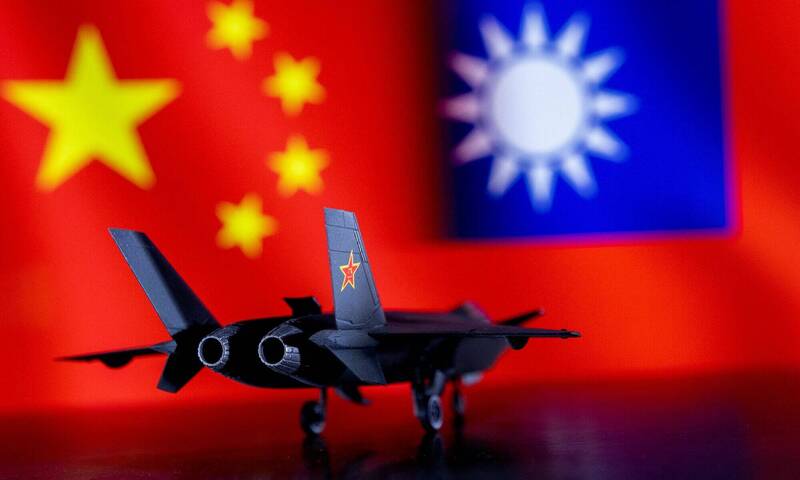"The Economist" magazine's latest series of reports on the cover story "Fighting for Taiwan" quoted General Aquilino, commander of the US Indo-Pacific Command, as saying that if deterring China fails, "you have to prepare to fight and win." ".
(Reuters)
[Compiled Yang Fuyi/Comprehensive Report] The threat of China's military invasion of Taiwan has caused global tension.
The latest cover story of "The Economist" magazine takes "The Struggle for Taiwan" (The Struggle for Taiwan) as the theme. Through a number of special articles and a series of special reports, it deeply explores the potential military conflict between the two superpowers of the United States and China. Possibly, as well as the historical and identity background of Taiwan, as a global semiconductor powerhouse, threatened by China's military, as well as the current situation of politics, economy, psychology, defense, and diplomacy.
Among them, the report "America and China are preparing for a war over Taiwan" (America and China are preparing for a war over Taiwan) pointed out that if China chooses to go to war, it may use military exercises as a disguise, and the United States can provide the shortest warning time according to intelligence Fear only a few hours; the US must act with great skill, by strengthening itself, its allies and Taiwan, so that Chinese leader Xi Jinping is more suspicious of going to war, but not making Xi feel that he must act quickly or give up taking Taiwan forever .
Please read on...
General Aquilino, commander of the US Indo-Pacific Command, said that war with China is neither inevitable nor imminent, and its first task is to do everything possible to avoid conflict; however, "if deterrence fails, you have to prepare to fight and win." .
He also warned that there is no such thing as a quick fix, as Russia's invasion of Ukraine showed.
According to the report, the first question facing the U.S. strategy is how much warning time is there before war breaks out?
The Communist Army has an estimated 2 million active-duty soldiers. It needs a long preparation period to carry out the largest amphibious attack since World War II. It is bound to cancel vacations, gather landing ships, stockpile ammunition, set up operational command posts, etc.; once Xi Jinping chooses war, many of them will The operation may be disguised as a military exercise.
The report pointed out that the United States will expose China's war preparations as soon as possible, as it did during Russia's invasion of Ukraine, and call for international alliances to fight against it.
U.S. defense officials said that the U.S. may only see clear signs of an impending war two weeks in advance; if the Communist army launches a smaller-scale operation, such as seizing Taiwan's islands adjacent to mainland China, the warning time may be only a few hours.
In addition to a full-scale invasion, China is likely to engage in "grey zone" operations as an alternative or prelude to broader attacks, including economic coercion, full or partial blockades, and the seizure of outlying islands such as Kinmen.
The report pointed out that China must also make a major decision, whether to attack Taiwan only, trying to create a fait accompli while the United States and its allies hesitate, or to attack the US military in the region and launch another Pearl Harbor incident?
If Beijing chooses the former, the United States will be able to attack China's aggressive fleet; if it is the latter, the United States will almost guarantee full participation in the war; if China attacks the US military bases in Japan, Japan may also participate in the war.
According to the report, sinking the Chinese aggression fleet at the beginning of the war is a key task in defending Taiwan; the United States and many strategists in Asia worry that if Taiwan is lost, the regional order led by the United States will be replaced by the order led by China, the first island chain It will no longer be able to restrain China, but will become a platform for China to project its power further.
A US military official described: "Taiwan is like a cork on the mouth of a bottle."
If a war in the Taiwan Strait breaks out, it will incur heavy economic costs.
The report quoted the assessment and analysis of the RAND Corporation and the Rhodium Group. If it lasts for one year, China’s GDP (gross domestic product) will be reduced by 25% to 35%, and the US GDP will be reduced by 5% to 10%. Given that Taiwan produces 90% of the world’s The interruption of the supply of the most advanced computer chips and semiconductors will lead to a global shortage of electronic products, which in turn will cause "immeasurable" great losses to the world economy.
